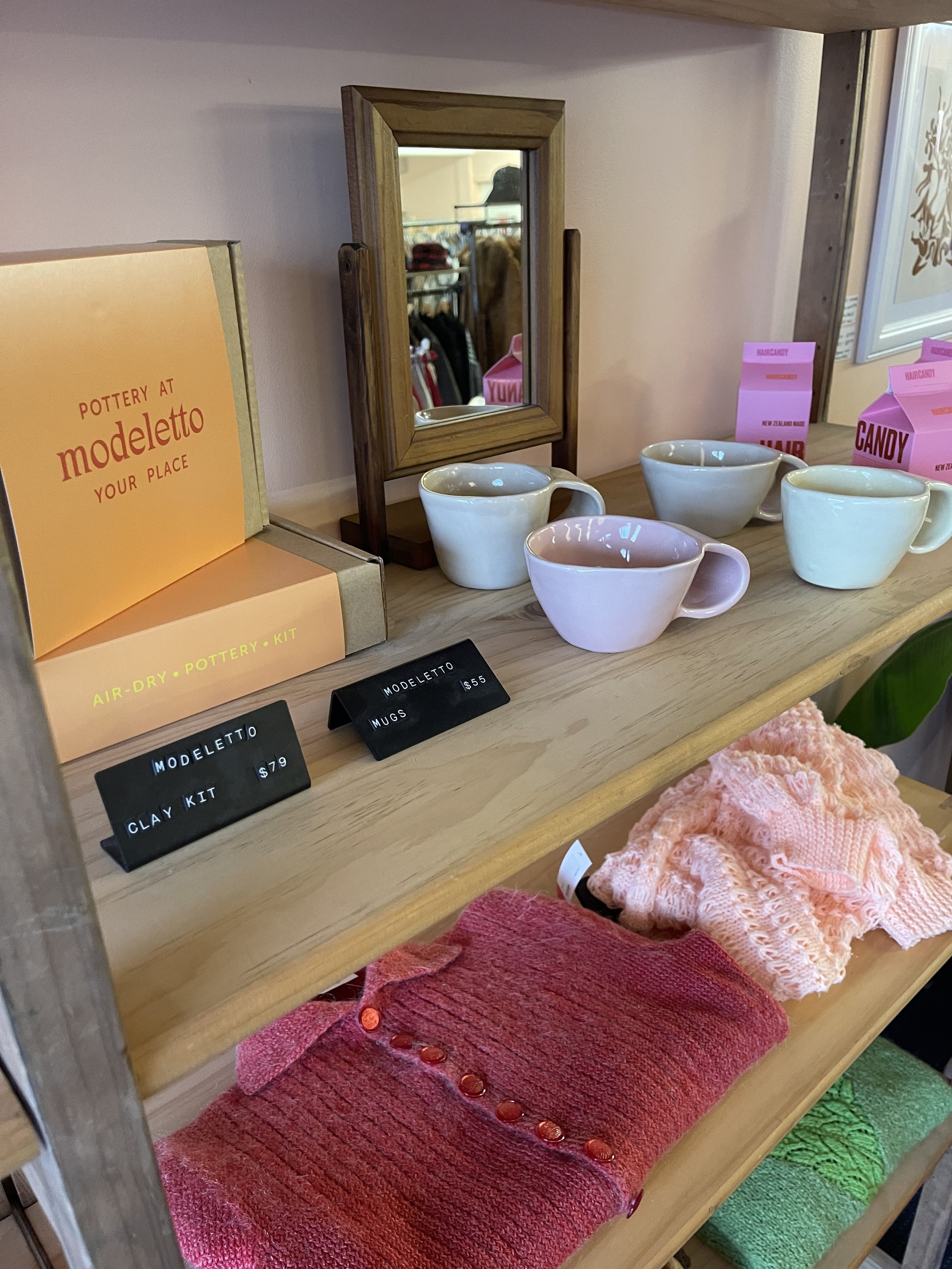Connecting people through second-hand clothes.
Almost one year ago, Ōtautahi got Nifty: a vibrant, pink, second-hand store. The city’s thrifters have been better for it ever since.
Owner Rosie Carroll spent years putting together flea markets for vintage shoppers before opening a space of her own in 2022.
Carroll said it’s been great moving to a permanent space to run flea markets smoothly and sell second-hand goods consistently.
She said the challenge has been juggling her “many hats.” Carroll manages everything from the money to the marketing and a small retail team.
Through all the long days, Carroll said she’s always trying to find time to “still be a human.”
“I’m still figuring that out,” she said.
Carroll said the best piece of advice given to her was to avoid working seven days. She manages one day off a week but aims for more in the future.
The business owner also runs the Instagram account @itsslowmo, an online community for those choosing conscious clothing habits. In the small amount of spare time she has, she can be found deep in a direct message conversation about the latest fast fashion controversy.
Carroll wanted Ōtautahi to be more accessible, which is why she rents out the upper level of her building to young people and their small businesses, giving them a “leg up.” Plus, it means shoppers can make their whole day Nifty.
A long-time seller at Carroll's markets, Becky Voisey, said she has an "awesome way" of including others.
"She makes you feel at home in the spaces she creates," Voisey said.
It was a goal of Carroll’s when opening Nifty that it would become a hub for young, creative minds to gather and interact.
“I always felt as a young person there was heaps of stuff for an older crowd, it wasn’t really focused on young people… I just wanted to solve my own problem of feeling like there was nothing to do,” she said.
Nifty supports small businesses by displaying and selling their goods.
Nifty is a consignment store, meaning unloved, over-flowing wardrobes can be sold at Nifty. The owner will receive a portion of the sales.
Voisey said Carroll was "careful" with accepting stock.
There’s so much clothing consumption that Nifty has a three-week waiting list for consignments. Carroll hates to turn pieces away but there’s “just so much clothing out there.”
Of the 100 billion clothing garments produced yearly, 60% will end up in a landfill.
What’s worse, over 50% of the average person's wardrobe goes unworn.
According to Voisey, Nifty has made second-hand shopping cool but attainable. She thinks young people would pick Nifty over fast fashion.
"At the end of the day, that’s what the younger population want. We want to be individual, but also fit in," Voisey said.
"If you’re a young person going second-hand shopping,” Voisey said, “you’d much rather go into a big pink store with cool music, friendly faces, who have affordable stickers you can put on your Frank Green [drink bottle].”
The popular big pink building.
Carroll said working for herself, and with “like-minded people” was the best move she made.
To others with a similar dream, Carroll said the best thing to focus on is yourself and your business. “Stick to what you think is a vibe and follow your intuition.”






